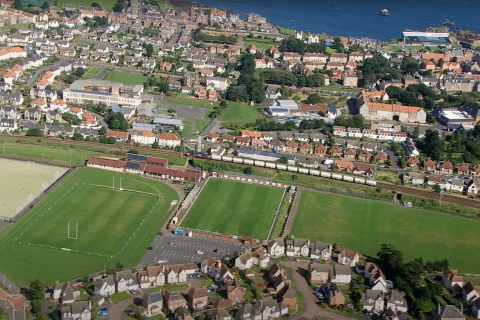Another rail service connects Greek port with the Balkans

The Northern Greek seaport of Thessaloniki is about to launch its second container block train, connecting to Skopje in North Macedonia. This is an important milestone for the port, considering that up until a year ago, it did not have any regular northbound services heading to Southeastern or Central Europe. The new service commences on 6 September and will run, for now, once a week.
“The new intermodal service allows further development of the port’s connectivity and international intermodal network. We are ready to increase itinerary frequency based on customer demand. It is also important to mention that only with a continuous modernisation of the railway infrastructure will it be feasible to develop new and innovative intermodal services further,” stated the port’s Managing Director, Thanos Liagkos.
The remark that Liagkos made about the development of infrastructure concerns both the Greek network and the rail link running from Northern Greece and through the Balkans. In Greece, it is imperative to upgrade the railway link leading to the border with North Macedonia (Idomeni border crossing), which still needs to be fully electrified.
At the same time, the port of Thessaloniki expects to acquire a direct railway connection between its 6th and largest dock and the main Greek railway network. Despite Thessaloniki being the second largest port in Greece, following Piraeus, such a rail link is still missing and is expected to be completed via a four billion euro railway investment plan in Greece.
Moreover, the corridor crossing through North Macedonia and further from Serbia to Hungary still has a long way to go before becoming fully electrified and efficient regarding capacity, train speed and weight.
Second block train
Almost a year ago, in late August 2022, the seaport of Thessaloniki acquired its first container block train service, linking it with the MBOX Terminal in Nis, Serbia. The service was launched by shipping giant CMA CGM. It was made possible through the cooperation of multiple parties, including the Greek (Hellenic Train), North Macedonian (MZ Transport) and Serbian (Kombinovani Prevoz) railway companies and nine other private and public entities.




